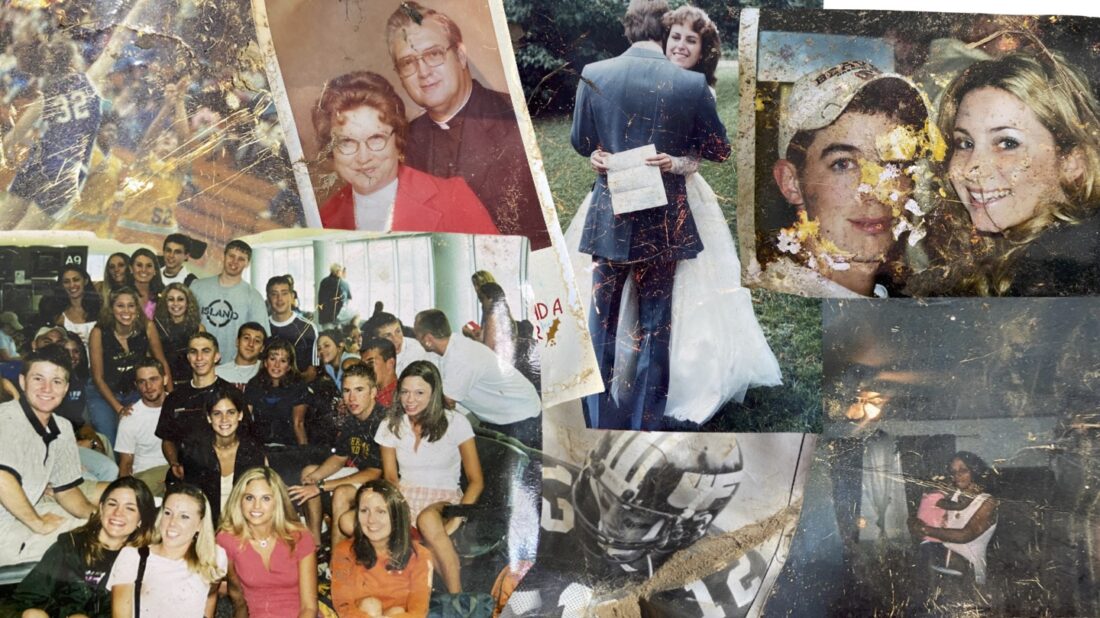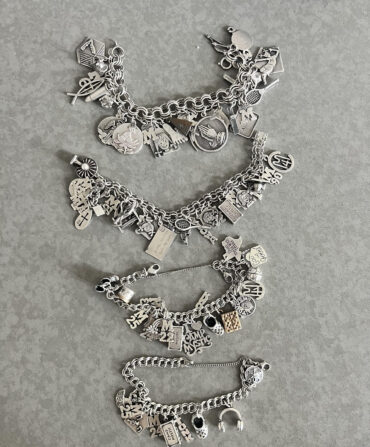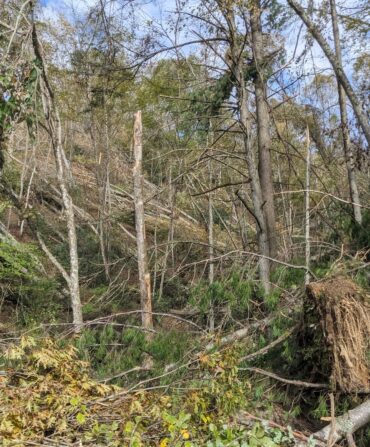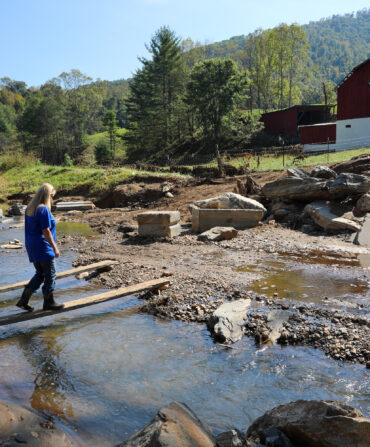Photographs cover nearly every inch of Taylor Schenker’s home office in Canton, North Carolina. There are wedding photos of tulle-draped brides and velvet-clad bridesmaids stacked on tables. Christmas cards lie neatly in plastic bins and rec-league softball team pictures dry out on a towel. From the top of one pile, a little girl grins, posing with her dog and a pineapple. Schenker doesn’t know these people, but she’d like to. Since Hurricane Helene washed away countless homes and businesses in Western North Carolina last month, Schenker has been collecting lost photos in an attempt to reconnect them with their owners.

“I got started because my friend—who lived along the Swannanoa River—lost her whole house to the hurricane,” Schenker says. “I went out to be moral support for her during her FEMA interview, and while I was waiting, I started looking around.” She and her friend ended up spending four hours scouring the riverbank for lost treasures. That included a few photos. “We laid all the items we found out on the riverbank, hoping others would come find them and get reconnected, and then we left,” she says. “I lost sleep thinking about how the photos would get rained on or how the wind could blow them away. I was so worried these little memories that survived so much could potentially not be reunited with their owners. So I went back the next day and picked up the photos and started the Instagram account.”
That account, @photosfromhelene, showcases printed photographs with the sole objective of returning them to their owners. “For people who have been through so much and lost so much, to be reunited with even just a few of these memories is special,” she says. Schenker began collecting photos herself but soon enlisted help from friends and local search and rescue teams. “I’ve also started to get photos sent in from our Instagram followers who have found photos in their own Helene cleanup. I purchased a P.O. box for the project.” So far, she’s amassed around three hundred.
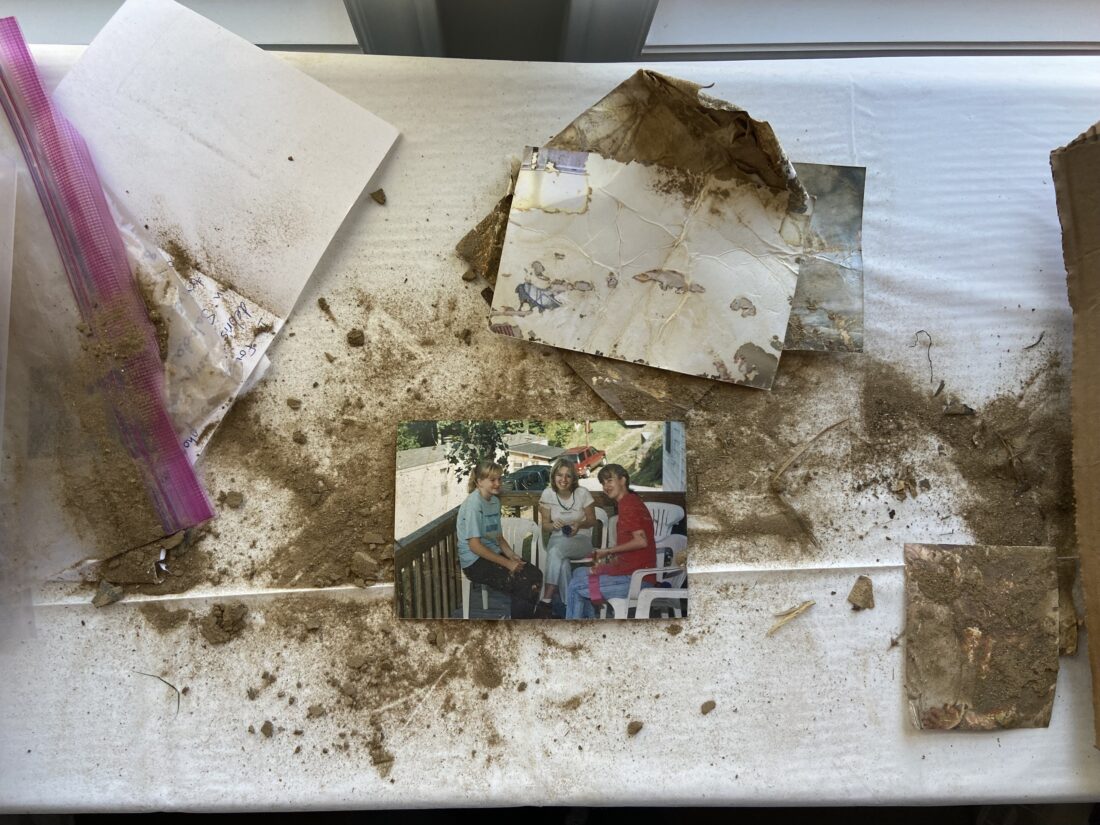
Once the photos are in her care, Schenker dries and cleans each one with a gloved hand or a soft paintbrush before photographing them, posting them on Instagram, and organizing them by subject matter and location so they’re easier to find when she needs them. When a photo is claimed (about 20 percent of the posted pictures have been), Schenker will ask the owner the location of the home the picture washed away from, collecting valuable data that can help others searching for lost property. On average, each photograph traveled a mile or two from its starting point.
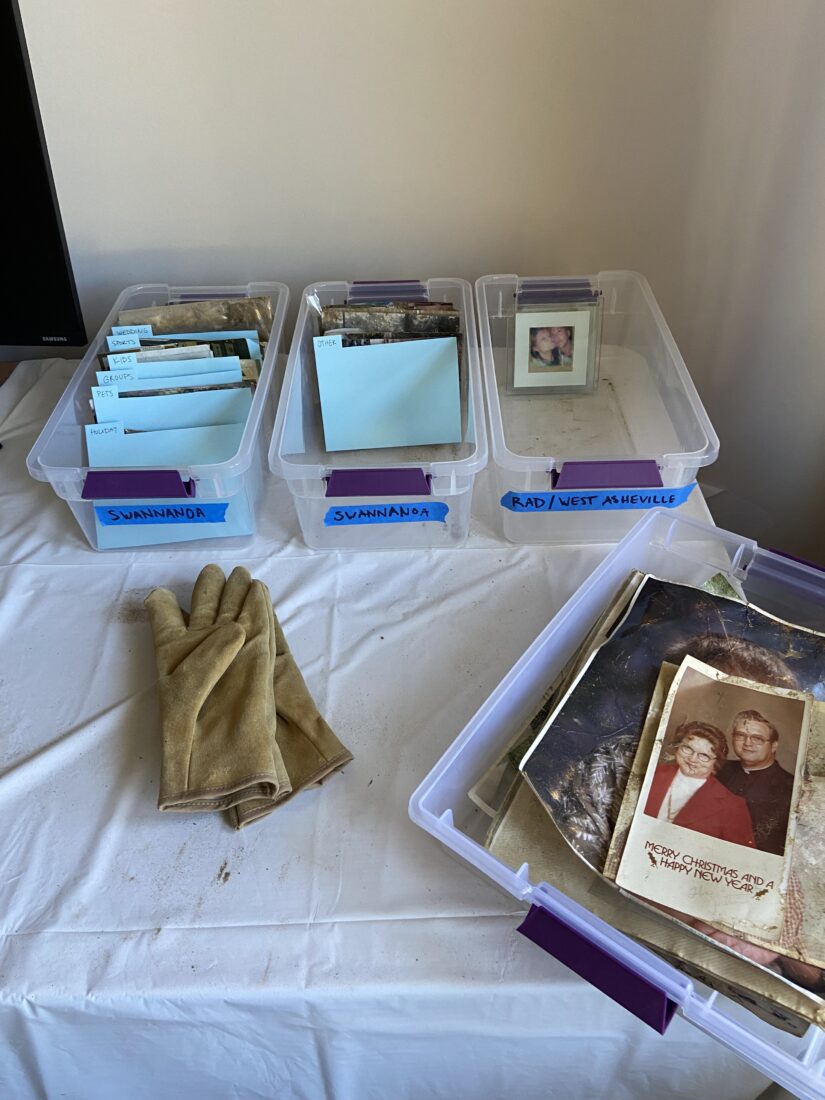
Then she returns them, either by mail or in person. “There was one mom in particular where I hand-delivered her photos,” Schenker says. “Her college-aged son found my page from a friend and recognized photos of himself and his brother, who had passed away a few years earlier. When they lost their house, they lost virtually all proof of this child’s existence.” The mother hugged Schenker tightly when she handed her a few school portraits and pictures of the young brothers together. Others have reclaimed baby photos of now-grown children, action shots of Clemson football games past, and snapshots of long-ago family vacations.
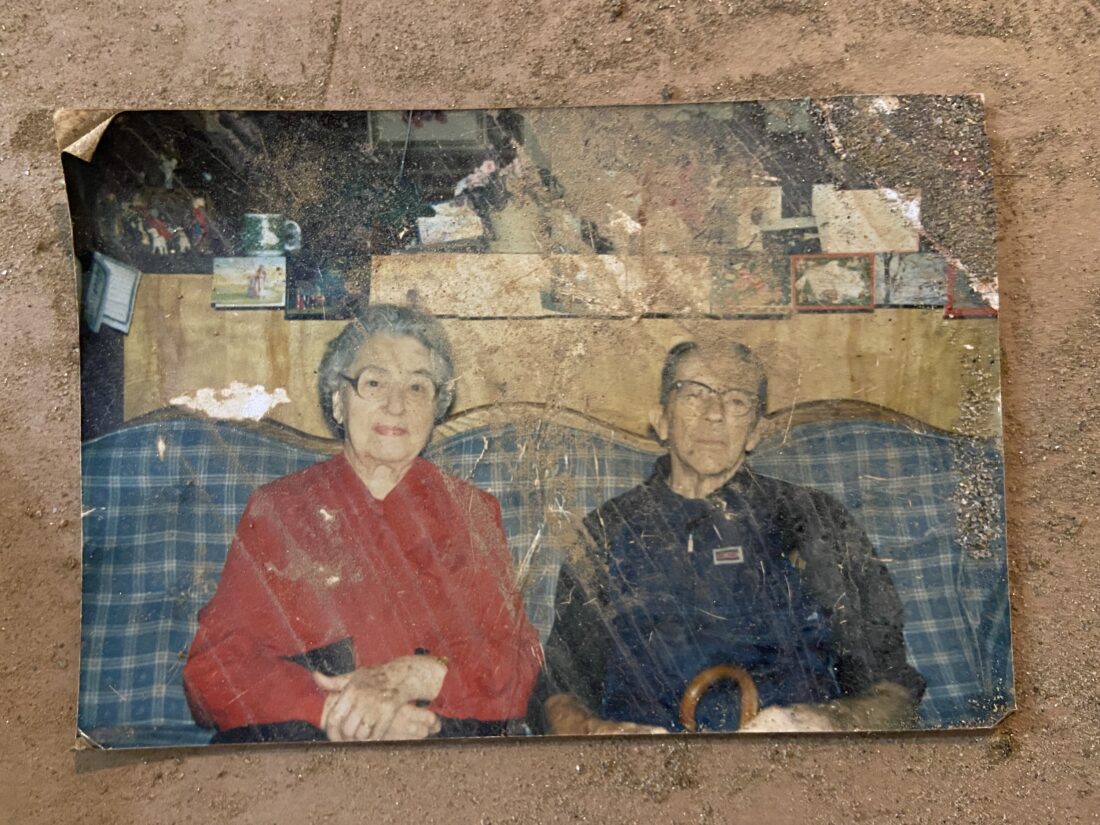
“Last week, a photo was claimed by someone who recognized their friend who had passed away in the hurricane when her apartment was destroyed,” Schenker says. “Her family had the funeral this weekend. To be able to reunite the parents with the photo—nothing can bring her back, but it was really special to be able to give them something.”
Follow the project on Instagram @photosfromhelene. If you have a photo you found in the storm, mail them to Schenker at:
P.O. Box 28
Canton, North Carolina 28716
Caroline Sanders Clements is the senior editor at Garden & Gun and oversees the magazine’s annual Made in the South Awards. Since joining G&G’s editorial team in 2017, the Athens, Georgia, native has written and edited stories about artists, architects, historians, musicians, tomato farmers, James Beard Award winners, and one mixed martial artist. She lives in North Charleston, South Carolina, with her husband, Sam, and dog, Bucket.


